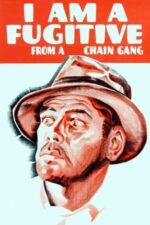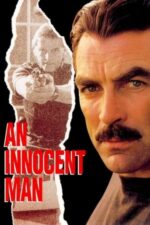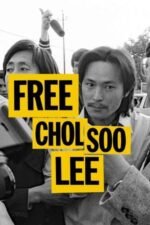In our cinematic journey through wrongful imprisonment, we find ourselves grappling with themes of injustice, resilience, and the unwavering human spirit. The films Framed, Free Chol Soo Lee, 25 Years of Innocence, I Am a Fugitive from a Chain Gang, In the Name of the Father, and U.S. Marshals all present compelling narratives that not only expose the flaws within our criminal justice systems but also highlight the strength of the human will in the face of adversity.
Framed's portrayal of Joe Don Baker's character, ensnared in a malevolent legal system, is a stark reminder of society's ability to strip an individual of their dignity and hope. The narrative masterfully illustrates how easily corruption can permeate the legal process, leading to devastating consequences for those caught in its web. The film serves as a cautionary tale about the dangers of trusting a system that is often rigged against the most vulnerable among us.
Free Chol Soo Lee, based on the true story of an innocent Korean immigrant wrongfully accused and convicted, is a powerful testament to the power of community activism. As Chol Soo Lee languishes in prison based on insubstantial evidence and misguided testimonies, journalist K.W. Lee becomes determined to uncover the truth behind his wrongful conviction. The subsequent grassroots movement that arises in support of Chol Soo Lee highlights the potential for unity among diverse communities and serves as a reminder of the vital role journalism can play in exposing injustice.
Tomasz Komenda's story, told in 25 Years of Innocence, is an agonizing tale of perseverance and hope against all odds. As he fights to clear his name alone after nearly two decades behind bars, the film drives home the devastating consequences of wrongful imprisonment on both the individual and their loved ones. The story underscores the importance of diligent investigation and the relentless pursuit of truth in our criminal justice system.
I Am a Fugitive from a Chain Gang and In the Name of the Father both delve into the harrowing realities of life behind bars for those unjustly convicted. The former, set against the backdrop of World War I, exposes the brutality and dehumanization that accompany chain gang labor, while the latter chronicles Gerry Conlon's heart-wrenching fight to clear his name and expose the tactics used by a system determined to convict him at any cost. Both films remind us of the crucial role of advocacy in securing justice for those who have been wronged by our legal system.
Lastly, U.S. Marshals presents an intriguing cat-and-mouse game between law enforcement and a convicted criminal who may not be as guilty as he appears. As Sam Gerard and John Royce navigate the complex web of deceit surrounding Mark Sheridan, they are forced to confront their own assumptions about justice and guilt. The film serves as a reminder that the pursuit of truth is rarely straightforward and often requires challenging our preconceived notions of right and wrong.
In each of these films, we witness characters grappling with the devastating consequences of being branded criminals despite their innocence. These narratives remind us of the importance of vigilance within our criminal justice systems, highlighting the need for diligent investigation, advocacy, and a relentless pursuit of truth.
In the end, these cinematic stories teach us that the human spirit can rise above even the most crushing circumstances. It is in these tales of wrongful imprisonment that we find hope—hope that justice can be served, hope that communities will rally together to right a wrong, and above all, hope that the human capacity for resilience knows no bounds.




























